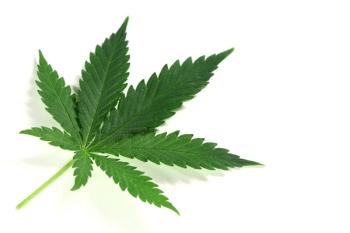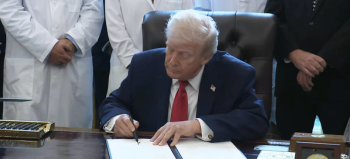
Appeal Hearing in Cannabis Lawsuit Against the DEA
The next step in the lawsuit against the Drug Enforcement Administration (DEA) and Department of Justice (DOJ) was heard this week at the United States Court of Appeals for the Second Circuit.
The next step in the lawsuit against the Drug Enforcement Administration (DEA) and Department of Justice (DOJ) was heard this week at the United States Court of Appeals for the Second Circuit. The lawsuit, filed in July 2017, claims that the listing of cannabis as a Schedule I drug under the Controlled Substances Act is unconstitutional because of the drug’s merits for medicinal use. Attorney Michael S. Hiller argued the appeal on December 12, 2018, to a panel of three judges: Judge Dennis Jacobs, Judge Guido Calabresi, and Judge Jed S. Rakoff.
The plaintiffs in the suit include 12-year-old Alexis Bortell, who takes cannabis to control epilepsy; 8-year-old Jagger Cotte, who uses cannabis to treat a severe neurological disorder called Leigh’s syndrome; Jose Belen, an Iraq war veteran who uses cannabis for post-traumatic stress disorder (PTSD); former NFL player Marvin Washington, the cofounder of a company that sells hemp-based sports performance products; and a nonprofit organization called the Cannabis Cultural Association that helps minorities benefit from the cannabis industry in states where it is legal (1). The original suit named former DOJ Attorney General Jeff Sessions as one of the defendants (now changed to acting Attorney General Matthew Whitaker), as well as Charles "Chuck" Rosenberg in his role as Acting Director of the DEA, and the United States of America.
The case was initially heard in February 2018 by U.S. District Judge Alvin Hellerstein in New York, but the judge ruled that the case should be dismissed on the grounds that the DEA has authority. Judge Hellerstein stated that before bringing the lawsuit to court the plaintiffs were required to exhaust administrative remedies, including petitioning the DEA to reschedule cannabis (2).
In the appeal hearing this week, each side was only allotted a few minutes to present their case. Hiller again argued that the designation of cannabis as Schedule I under the Controlled Substances Act was unconstitutional because it violates Americans 5th Amendment rights to preserve their life and health. Hiller answered tough questions from the panel of judges and discussed the Food and Drug Administration’s (FDA) recent approval of the drug Epidiolex (3,4) which contains cannabidiol (CBD), along with the limitations of that drug. Hiller also pointed out the extremely long wait time for the DEA to review rescheduling petitions, a process that takes up to nine years to complete.
Hiller explained that his clients are simply asking for the opportunity to prove that the designation of cannabis as Schedule I is unconstitutional. They want the case to proceed to trial.
The U.S. Attorney’s office again argued that the case had no bearing and the plaintiffs should direct their petition directly to the DEA. The judges asked tough questions of the government such as: If medical cannabis use is proven-it’s not new-why should we spend nine years waiting on what’s obvious?
In Hiller’s rebuttal time, he made points disproving the U.S. Attorney's arguments and explained that patients in states where medical cannabis is legal live in fear that their rights could be taken away by the Federal government at any time if Federal enforcement is enacted and state access is stripped away. He also explained that any delay in access or the decision to reschedule is egregious for patients that need cannabis to live, such as plaintiffs Jagger Cotte and Alexis Bortell.
The judges reserved judgement on the case, which can take anywhere from a few weeks to a couple months, during which time they will review the case materials, attorney briefs, and oral arguments. After the hearing ended, Hiller addressed a crowd of cannabis supporters outside the courtroom saying that the appeal went as well as it could have gone and that the questions posed by the judges were a good sign.
Sebastien Cotte, the legal guardian representing Jagger Cotte in the case, was present for the hearing and also felt hopeful from the proceedings. In a Facebook Live post, Cotte gave a quick recap of what happened in court, echoing the sentiments of Hiller. “It went as well as it could have gone,” he said. “We got some really good questions from the judges, but the Government got much harder questions, which is usually a good sign, but you never know.”
According to Cotte, if the appeal is denied, the next choice for the plaintiffs would be to take the case to the Supreme Court, which only sees about 10% of the cases that are submitted. If they win the appeal, they will likely send the case back to the Federal District Court level and move forward with a trial.
References:
https://www.thecannabist.co/2018/02/14/marijuana-schedule-i-lawsuit-trial/98979/ https://www.thecannabist.co/2018/02/26/marijuana-schedule-i-lawsuit-dismissed/100033/ http://www.cannabissciencetech.com/news/fda-approves-first-drug-containing-cbd http://www.cannabissciencetech.com/news/dea-reschedules-cbd-based-drug-schedule-v
Newsletter
Unlock the latest breakthroughs in cannabis science—subscribe now to get expert insights, research, and industry updates delivered to your inbox.




